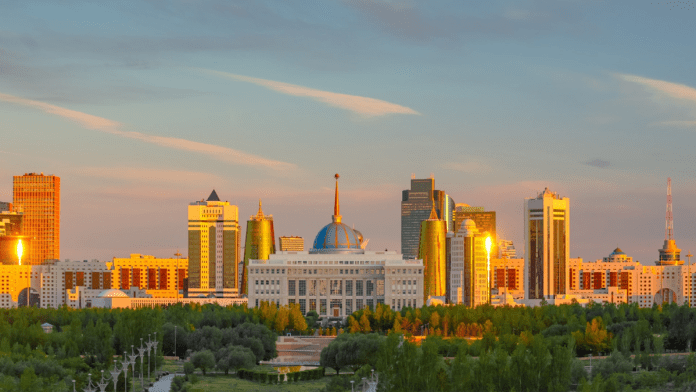🕒 Last updated on August 26, 2025
Kazakhstan aims for carbon neutrality by 2060, but the shift to clean energy needs more than technology, it requires skilled workers. Thousands will be needed to build and manage renewable systems, yet the country currently lacks enough trained specialists.
Growing demand for green jobs
The global market for green jobs is expanding quickly. Renewable energy projects, such as solar, wind, and hydropower, are creating millions of new jobs worldwide. In 2023 alone, renewable energy supported over 16 million jobs. Solar energy created the highest number of these jobs, followed by biofuels, hydropower, and wind power.
In Kazakhstan, the renewable energy sector is still relatively small. Current data shows that just over 2,100 people are employed in this field. Most of them work at solar power plants, wind farms, and hydroelectric stations. Women make up around 14% of the workforce.
However, Kazakhstan has plans to expand. By 2030, the country expects to create around 12,000 green jobs. This growth will come from new projects being launched with the help of both local and international companies. Major energy firms from around the world are partnering with Kazakhstan to build large-scale renewable power plants. These projects will also create thousands of temporary jobs during construction.
The numbers highlight that there is strong potential for job growth in clean energy. Yet, without proper training programs, many of these jobs might remain unfilled or could require outside workers from other countries.
Building skills through education
To meet this challenge, Kazakhstan is making changes in its education system. Universities and colleges are starting to offer new courses focused on renewable energy. More than 30 new programs have been added in recent years. These cover subjects such as hydropower, energy efficiency, alternative energy, and hydrogen technology.
Students can now study areas like energy storage systems, smart grid technology, and hydrogen fuel. Some universities are also carrying out research projects in these fields. By involving employers in course design, schools aim to match education with industry needs.
Special programs have also been introduced for nuclear energy. With Kazakhstan preparing to build its first nuclear power plant, training future specialists is becoming a priority. Partnerships with international universities are helping bring in expertise. Students are also given practical training opportunities in local enterprises, preparing them for future roles in the industry.
Hydrogen energy is another field gaining attention. New degree programs now include subjects on hydrogen production and fuel cells. This reflects global trends where hydrogen is seen as a clean alternative fuel. As technology advances, Kazakhstan is preparing specialists who can work with these systems.
Managing the transition for workers
The shift to green jobs also means changes for workers in traditional industries. Many people are still employed in coal, oil, and gas. As these industries shrink, workers risk losing their jobs. To address this, Kazakhstan has planned retraining and reskilling programs. These programs will prepare workers to move into new roles in renewable energy, hydrogen technology, and energy auditing.
Social protection measures are also being introduced to support workers during this shift. Regional training centers are being set up in partnership with universities and colleges. These centers will provide professional courses, internships, and connections with employers.
Hong Kong to delist China Evergrande as liquidation of assets continues
International organizations and private companies are also involved in pilot programs. These include internships and employment opportunities for young professionals entering the green sector. By combining education with hands-on training, Kazakhstan aims to build a pool of specialists who can drive its low-carbon goals.
This process is part of what is known as a “fair transition.” It ensures that workers in older industries are not left behind while new opportunities are created in cleaner fields. The idea is to make the energy transition beneficial for both the economy and the people.
Kazakhstan is at the start of a major shift in its workforce. Clean energy projects are expanding, new educational programs are being launched, and thousands of jobs are set to open up. The challenge remains whether the country can train enough specialists in time. For now, the foundations are being laid, and the next few years will show how quickly the green workforce can grow to power Kazakhstan’s low-carbon economy.

